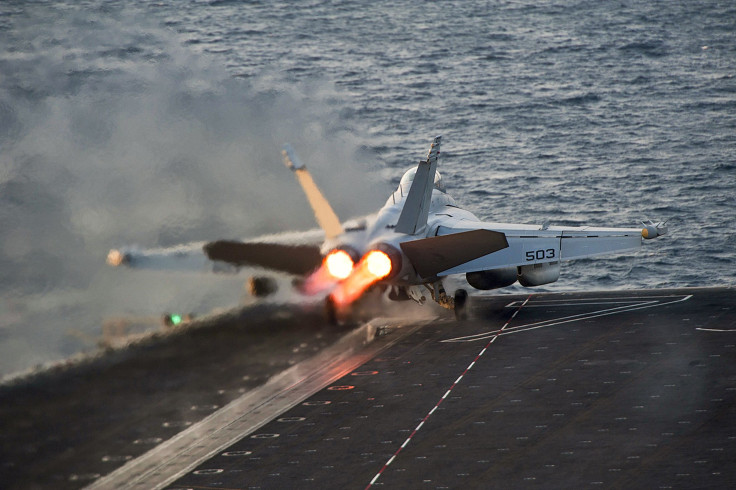US Officials Confirm UAE Suspended Airstrikes Against ISIS After Capture Of Jordanian Pilot

U.S. officials confirmed, late on Wednesday, that the United Arab Emirates -- a key member of the U.S.-led coalition conducting airstrikes in Syria and Iraq -- had ceased operations against the Islamic State group shortly after Muath al-Kaseasbeh, the Jordanian pilot whose execution video was recently released, was captured by the group in December.
“I can confirm that UAE suspended air strikes shortly after the Jordanian pilot's plane went down,” a U.S. government official, speaking on the condition of anonymity, told Reuters. “But let me be clear that UAE continues to be an important and valuable partner that is contributing to the coalition.”
The comments came a day after The New York Times reported that the UAE had suspended airstrikes against ISIS in December over demands that the U.S. improve its search and rescue efforts in regions controlled by the militant group. The Times reported that senior UAE government officials had questioned the efficacy of U.S. military assets for rescuing downed pilots in northern Iraq and Syria -- territories that have been under ISIS control since June last year.
Al-Kaseasbeh, a 26-year-old Jordanian air force pilot, was captured by ISIS in December after his plane crashed near Raqqa, Syria. He was allegedly executed early in January.
According to the Times report, which cited anonymous U.S. officials, the oil-rich Gulf nation has demanded that the U.S. military relocate its V-22 Osprey aircraft from Kuwait to northern Iraq, so that it is closer for rescue missions if any coalition plane goes down in the future. The Ospreys are utilized extensively for search and rescue missions as they can take off vertically like helicopters but fly at the speed of a plane.
However, the U.S. government has, so far, not acknowledged the UAE’s withdrawal from the coalition. During a press briefing on Wednesday, U.S. State Department spokesperson Jen Psaki said that the administration is “not going to confirm any reports about other countries and their military operations.”
The purported withdrawal of UAE from the U.S.-led coalition is significant as the former has been a staunch regional ally in the fight against ISIS. The UAE was the first country to explicitly throw its weight behind the coalition, much before NATO member states joined the fight, according to media reports.
© Copyright IBTimes 2024. All rights reserved.












